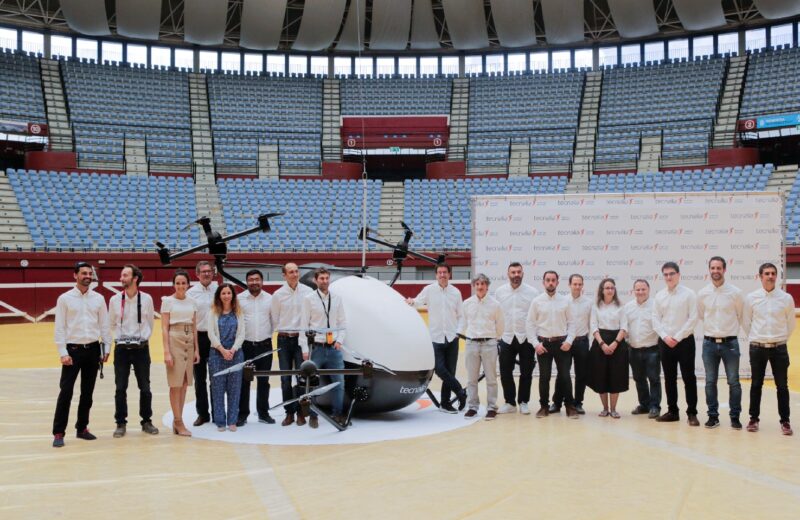Tecnalia reveals eVTOL prototype

exc-5d41611f6761e800016cd8f0
Spanish tech and research firm Tecnalia is taking its first step into the urban air mobility (UAM) market by building and flying a 16-rotor eVTOL prototype air taxi.
The company’s UAM aspirations were kept under wraps until the firm released a video of the air taxi prototype taking a fully autonomous test flight in Donostia-San Sebastian, Spain earlier this month.
What sets this aircraft apart from others of its ilk is its unique control system. The lift and propulsion are generated by four drones that can change trajectory independently of each other, meaning the aircraft remains stable in adverse conditions.
A Tecnalia spokesperson said: “The main novelty of Tecnalia’s aircraft lies in the fact that the architecture allows the cabin to maintain its orientation regardless of speed, a clear advantage over conventional drones and current ‘air taxi’ applications. This feature enhances the flying experience, providing a sensation similar to that of travelling by car or bus from a dynamic point of view.”
The current prototype is designed to fly one passenger (which Tecnalia hopes to be scaled up to four upon commercial release) and has a limited carry weight of 150kg. At this stage, the aircraft is no more than a proof-of-concept.
The final design is planned to have a top speed of 190km/h, a range of 15km and a maximum cruise height of between 100 and 300 metres. With these specifications, Tecnalia claims the aircraft is suited to 85% of transport requirements in city centres.
Tecnalia’s head of technology and innovation futurist Iñaki Iglesias told Revolution.Aero: “This is the first project in which we developed our own idea related to the UAM from the beginning to the end, from the identification of the market niche to the definition of the target mission, the design, and development of the complete aircraft and finally the control of the aircraft.”
The announcement also mentions ‘mobile phone interaction’ with the aircraft – hinting at an all-encompassing booking platform for hailing the aircraft. Expanding on this, Iglesias said: “Everything has been planned, from the way of accessing the service (through the mobile phone, like what is currently used by some car-sharing services), to the human interaction with the aircraft and the virtual assistant that will guide the passenger during the journey assisting and making the trip more relaxed.”
Agustín J. Sáenz, Tecnalia’s deputy director of marketing, mentioned shared air taxi services as a possible “operational model” for the aircraft. He also mentioned urban goods transport as a possible use.
Tecnalia is in talks with a number of industrial partners to manufacture a final product and expects the aircraft to be out in the market and flying within five years. It is also working with authorities to make certain legislative changes so as to allow the aircraft to fly as intended (such as flying at its expected cruising height autonomously).
Experimental flights of the aircraft are planned to be carried out in Los Angeles, Dallas, Dubai, Singapore and Tokyo in 2020. When queried, Iglesias clarified that early implementation and testing of the aircraft in urban areas will be flown autonomously under pilot supervision.







